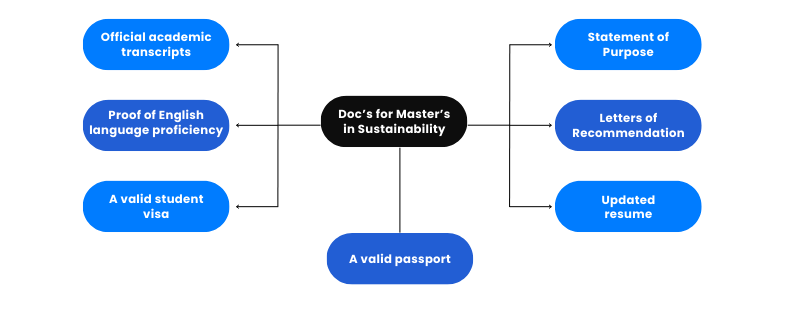
Sustainability is the art and science of meeting present-day needs without compromising the ability of future generations to meet their own. With the global demand for environmentally responsible practices on the rise, governments and businesses are reimagining their operations to align with sustainability goals. This paradigm shift has fueled an urgent need for skilled professionals who can navigate regulatory landscapes and drive sustainable transformations.
Highlighting this trend, Allen Blue, co-founder of LinkedIn, emphasizes:
“The number of green jobs is nearly double the number of individuals with green skills. Trillions of dollars are being invested every year and will continue for the foreseeable future. Efforts around climate are growing exponentially, and with that comes significant hiring opportunities.”
Why Learn Sustainability?
A Master’s in Sustainability equips students with the tools to address these challenges, bridging the gap between industry needs and the talent required to achieve ambitious environmental objectives. This interdisciplinary field combines knowledge from environmental science, business, and policy, providing a comprehensive approach to solving sustainability issues.
Key benefits of pursuing a Master’s in Sustainability include:
Diverse Career Opportunities: Graduates can pursue careers across various sectors, including energy, consulting, government, and corporate sustainability.
Expanding Job Market: Rising demand for sustainability experts is creating growing job opportunities as businesses and governments prioritize environmental responsibility. Millennials and GenZ tend to prefer organizations that care about green and sustainable initiatives, leading to increasing demand for experts in this field.
Competitive Salaries: Sustainability professionals earn competitive salaries, with average annual incomes ranging from $70,000 to $90,000, depending on the role.
Personal Fulfillment: A career in sustainability offers the chance to make a meaningful impact on global issues, providing both professional growth and personal satisfaction.
Best Colleges to Study a Master’s in Sustainability in U.S
If you’re considering a Master’s in Sustainability, the U.S. is home to some of the world’s leading universities offering exceptional programs in this field. Here are six top institutions renowned for their comprehensive sustainability curricula, research opportunities, and commitment to environmental stewardship:
- University at Albany, SUNY
- Carnegie Mellon University
- George Mason University
- Arizona State University
- American University
- University of New Hampshire
To know about more universities offering Master’s in Sustainability, click here.
Top Universities for Master’s in Sustainability in the U.S. (Rankings and Approximate Tuition Fees)
| University Name | QS World Ranking (2025) | Estimated Annual Tuition Fees (USD) |
| University at Albany, SUNY | #851-900 | $24,805 – $27,255 |
| Carnegie Mellon University | #58 | $38,422 |
| George Mason University | #1001-1200 | $36,477 |
| Arizona State University | #200 | $35,430 |
| American University | #711 | $57,660 |
| University of New Hampshire | #1001-1200 | $36,416 |
Eligibility Criteria for Master’s in Sustainability in the U.S.
To apply for a Master’s in Sustainability in the U.S., the following general eligibility criteria apply:
- A 4-year bachelor’s degree in environmental science, engineering, business, or a related field.
- A GPA of 3.0 or higher on a 4.0 scale.
- A TOEFL score of 80+ or an IELTS score of 6.5+.
- Some programs may require relevant work experience.
It is important to check the specific university websites for the most up-to-date eligibility criteria and application requirements.
How to Apply

Applying to a Master’s in Sustainability program requires submission of an application through the university’s website. Generally, the following documents are required:
- Official academic transcripts
- Proof of English language proficiency (IELTS/TOEFL score)
- Statement of Purpose (SoP)
- Letters of Recommendation (LOR)
- Updated resume
- A valid student visa
- A valid passport, etc.
For a more precise list, it is essential to visit the website of the corresponding university for specific application requirements
Key Course Structure
A Master’s in Sustainability in the U.S. typically includes core courses that cover the basics of sustainability, environmental science and policy, sustainable development, and sustainable business practices. Students study topics such as energy and resource management, environmental economics, and climate justice. Many programs also teach skills in data analysis and Geographic Information Systems (GIS). Students gain practical experience through capstone projects or internships, with some programs focusing on global sustainability issues and ethics. Additionally, leadership and communication skills are emphasized to prepare students for roles in sustainability leadership and policy.
Specializations
Master’s in Sustainability programs offer various specializations to suit students’ interests. These include Sustainable Energy (renewable energy and efficiency), Environmental Policy and Management (policy development and sustainability strategies), and Sustainable Business and Corporate Responsibility. Other options include Urban Sustainability and Development, Climate Change and Environmental Justice, Water Resources Management, Sustainable Agriculture and Food Systems, Natural Resource Management, Green Building and Sustainable Architecture, and Environmental Health and Toxicology. These specializations allow students to focus on specific areas within sustainability.
Planning to study abroad? Explore student life, admission requirements, and top universities in top study abroad destinations to make the best choice for your future.
 |
 |
 |
 |
 |
 |
 |
 |
Post-Study Work Opportunities and Industries Hiring Masters in Sustainability Graduates
Graduates with a Master’s in Sustainability have a wide range of post-study work opportunities across various industries. Key sectors hiring sustainability professionals include:
- Renewable Energy: Companies focusing on solar, wind, and other renewable energy sources.
- Environmental Consulting: Firms offering expertise in sustainability practices and environmental regulations.
- Government and NGOs: Public sector organizations working on policy development, environmental conservation, and climate change initiatives.
- Corporate Sustainability: Businesses integrating sustainable practices into their operations and strategies.
- Agriculture and Food Systems: Companies working on sustainable agriculture, food security, and resource management.
These sectors provide roles in environmental policy, project management, sustainable business practices, and more, offering strong career growth prospects. Top roles that can be secured after a Master’s in Sustainability include Sustainability Manager, Environmental Consultant, Renewable Energy Specialist, Climate Change Analyst, Corporate Social Responsibility Manager, and Green Building Consultant.
Advantages of Studying a Master’s in Sustainability in the U.S.
• High-quality education: U.S. universities offer access to top professors and cutting-edge technology, providing valuable expertise in sustainability. The curriculum often includes a mix of core courses and electives, allowing students to specialize in areas like renewable energy, sustainable development, and environmental policy.
• Exceptional career opportunities: Graduates with a Master’s in Sustainability from U.S. universities enjoy a wide range of career options in sectors like energy, environmental consulting, corporate sustainability, and government agencies. As green awareness increases year-on-year, demand for this field has steadily increased. The hands-on experience gained during the program makes graduates highly attractive to employers, and the quality of education leads to competitive salary packages.
• Opportunities to explore diverse cultures: Studying in the U.S. offers the chance to engage with diverse cultures and perspectives. Universities often host events that celebrate various traditions, enriching the learning experience and promoting global awareness.
For more assistance regarding a Master’s in Sustainability, check out ApplyBuds, a data-driven intelligent platform that helps you find the perfect program based on your academic background and career goals. We guide you seamlessly through the application process to ensure you take the right steps toward a fulfilling career in sustainability.
Take Charge of Your Future Now

